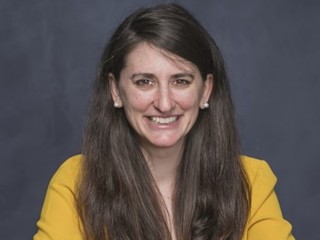 Breastfeeding support and pumps are required to be covered under the Affordable Care Act but parents often don’t realize that they have access to both of these resources starting during pregnancy to help create a better transition after baby is born. The White House also announced last September that HHS would begin enforcing this policy as well.
Breastfeeding support and pumps are required to be covered under the Affordable Care Act but parents often don’t realize that they have access to both of these resources starting during pregnancy to help create a better transition after baby is born. The White House also announced last September that HHS would begin enforcing this policy as well.
That is where SimpliFed comes in: the company is on a mission to democratize access to baby feeding support services, which it does by providing parents with virtual breastfeeding and baby feeding support. It connects them with its network of baby feeding experts via a telehealth platform.
Now SimpliFed will also help improve access to breast pumps through a newly signed mutual preferred provider agreement with Byram Healthcare, which the company announced on Tuesday.
This means that, after families purchase a breast pump, they will get notified about SimpliFed services covered by many health plans to help them get sized and properly use a breast pump. SimpliFed’s lactation and baby feeding support services are available on many commercial, Medicaid, and TRICARE plans across the United States.
Also families can go directly to Byram’s website to sign-up to receive SimpliFed’s services. Similarly, SimpliFed will have a link on their website to access insurance-covered breast pumps from Byram.
To use SimpliFed, a user has to just text or sign up via our website to begin accessing care during pregnancy or postpartum. At the beginning of their care journey, the company will introduce them to their virtual care team, including your lactation consultant and Ally, who work with them to help you reach their feeding goals over time.
After baby is born, Simplifed will also give them access to postpartum care services.
“Byram is a leading provider of breast pumps and SimpliFed is a leading provider of breastfeeding support nationally. Because both breast pumps and breastfeeding support are ACA-mandated benefits, both Byram and SimpliFed are incredibly complementary services,” she saod.
“Parents often need certified provider support in helping to select a breast pump that works for them and their goals, along with getting sized properly. SimpliFed parents often access providers where they can get access to insurance-covered pumps and both partners wanted to democratize access to these resources for their patients.”
SimpliFed’s lactation and baby feeding support services are available to many commercial, Medicaid, and TRICARE plans across the United States.
Ultimately, Ippolito believes that by working with Byram, the companies will be able to help improve access to pregnant and postpartum women across the country, specifically helping SimpliFed patients gain access to breast pumps easily online starting during pregnancy.
“The end goal here is to better support families with evidenced-based information and guidance to use their breast pump properly and most effectively. It is critical for parents to use the right size breast pumps and on settings that are optimal for them. It can be difficult to navigate a new device, and sometimes using a breast pump can be painful if not setup properly,” she said.
The combination of breastfeeding support services from SimpliFed with breast pumps together, helps arm parents with modern tools to help them be successful with their baby feeding goals, Ippolito explained.
“Women are half the workforce now and we need to ensure they get access to tools to help them be successful no matter how they feed their baby. If breastfeeding and breast pumping are part of their goals, we should give them access to the right tools and services covered by their health plan to be successful.”
(Image source: simplifed.com)
















